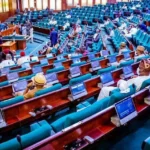Nigeria’s oil and gas sector is once again at the center of heated debate. The Committee of Patriotic Forces has sounded an alarm over two government moves: the planned proposed sale of Federation equity in key upstream Joint Ventures (JVs) and the planned amendments to the Petroleum Industry Act (PIA) of 2021. Both issues deserve sober reflection, not just emotional reaction.
The fear of losing control over “crown jewel” assets is real. Reducing Federation stakes from 55–60% to 25–35% in producing JVs means lower long-term dividends, weaker forex inflows, and diminished sovereignty over critical national resources. Coupled with the perception that sales are targeted at politically connected actors lacking technical or financial depth, Nigerians are right to be concerned. Once such assets leave public hands, recovering them is costly and often impossible.
Yet, the matter is more complex than outright rejection. Majority ownership has not always worked in Nigeria’s favor. NNPCL, as the custodian of these shares, is burdened by bureaucracy, cash-call obligations, and political interference. Its dominance often slows decision-making and drives up costs. In fact, many investors argue that NNPCL’s heavy hand has undermined efficiency and delayed critical field developments. Reducing its equity — if done transparently and strategically — could ease this burden, improve efficiency, and give credible indigenous operators more room to thrive.
The fiscal context cannot be ignored either. Nigeria’s debt service is unsustainable, foreign reserves are strained, and social demands are rising. In such a scenario, asset sales appear tempting as a quick source of revenue. But here lies the danger: without fiscal discipline, the proceeds risk being swallowed by recurrent spending. Selling today to fund consumption, instead of using proceeds for debt reduction or long-term infrastructure, is the real threat to intergenerational equity.
Equally worrisome is the attempt to amend the Petroleum Industry Act. The PIA was crafted after two decades of deliberation to provide stability, attract investment, and separate policy from regulation and commercial roles. To tinker with it barely four years later sends the wrong signal to investors: Nigeria changes the rules too easily. It risks discouraging long-term capital and deepwater investment, especially if the amendments are perceived as rent-seeking maneuvers to benefit a few.
Nigeria stands at a crossroads. What is needed is not panic, but prudence. If the government must divest, it must do so selectively, transparently, and only to buyers with proven competence and capacity. If the PIA must evolve, it should be through better implementation, not premature amendments. Above all, fiscal discipline must be restored, so that Nigeria’s oil wealth is managed not just for today’s relief but for tomorrow’s prosperity.
The real question is not whether we should sell or amend, but whether we have the governance strength to ensure that such actions serve the national interest, rather than elite capture.
Wumi Iledare
Professor Emeritus of Petroleum Economics, LSU Energy Studies and Principal Facilitator
FUPRE Energy Business School, Effurun, Nigeria










